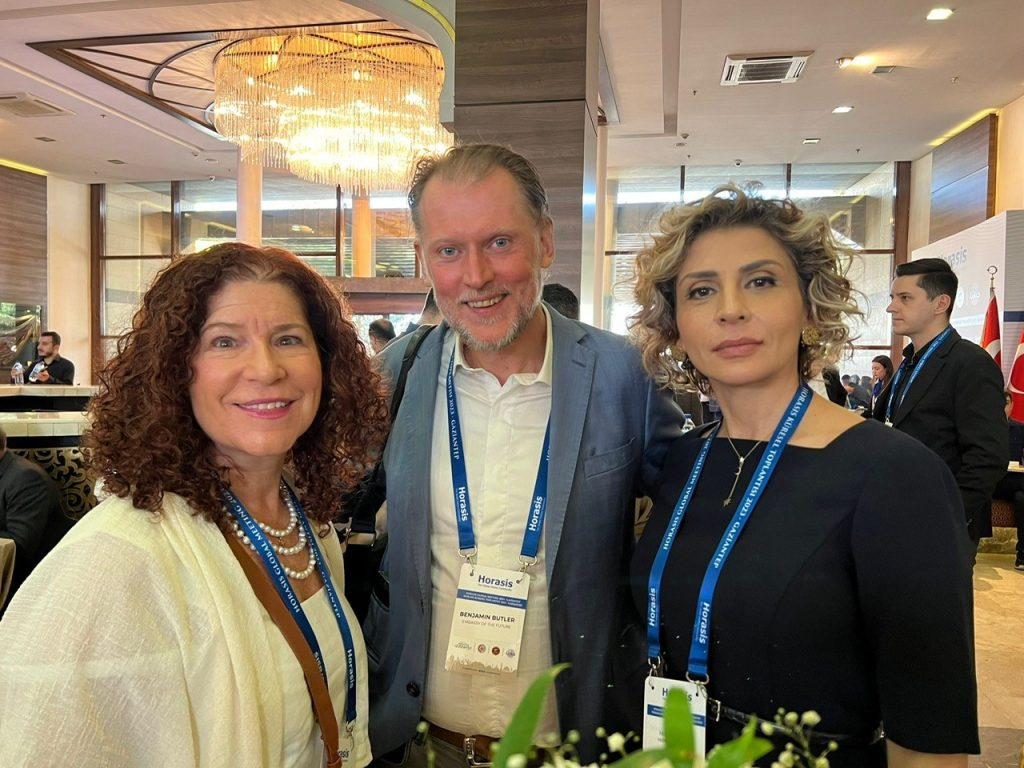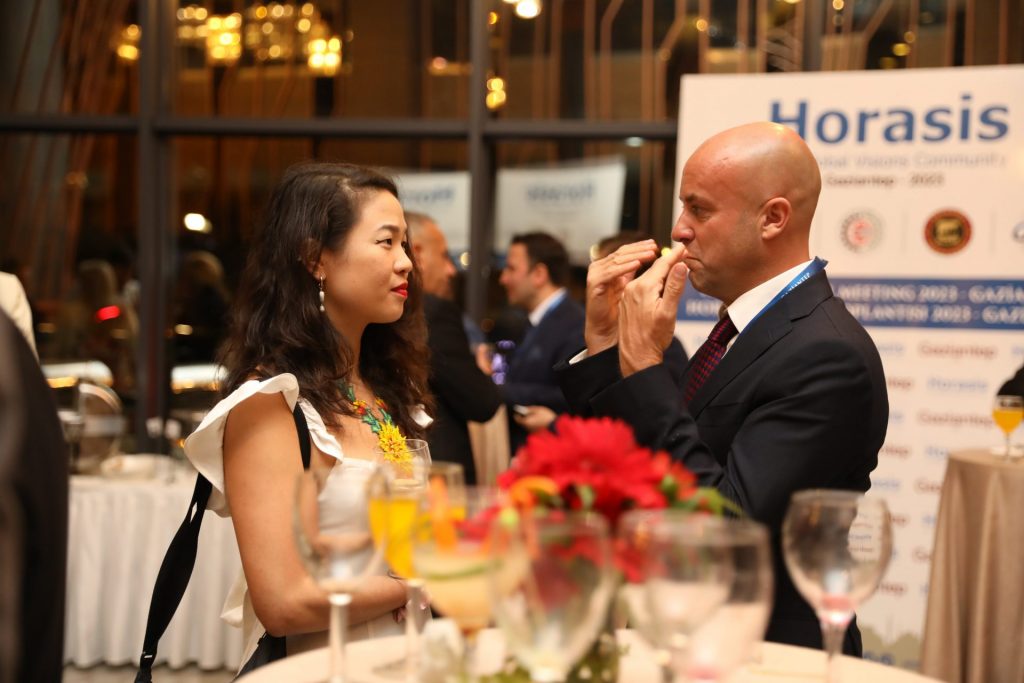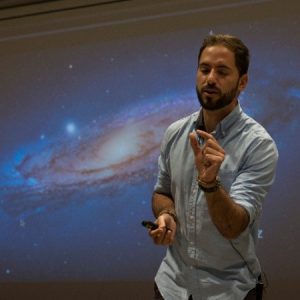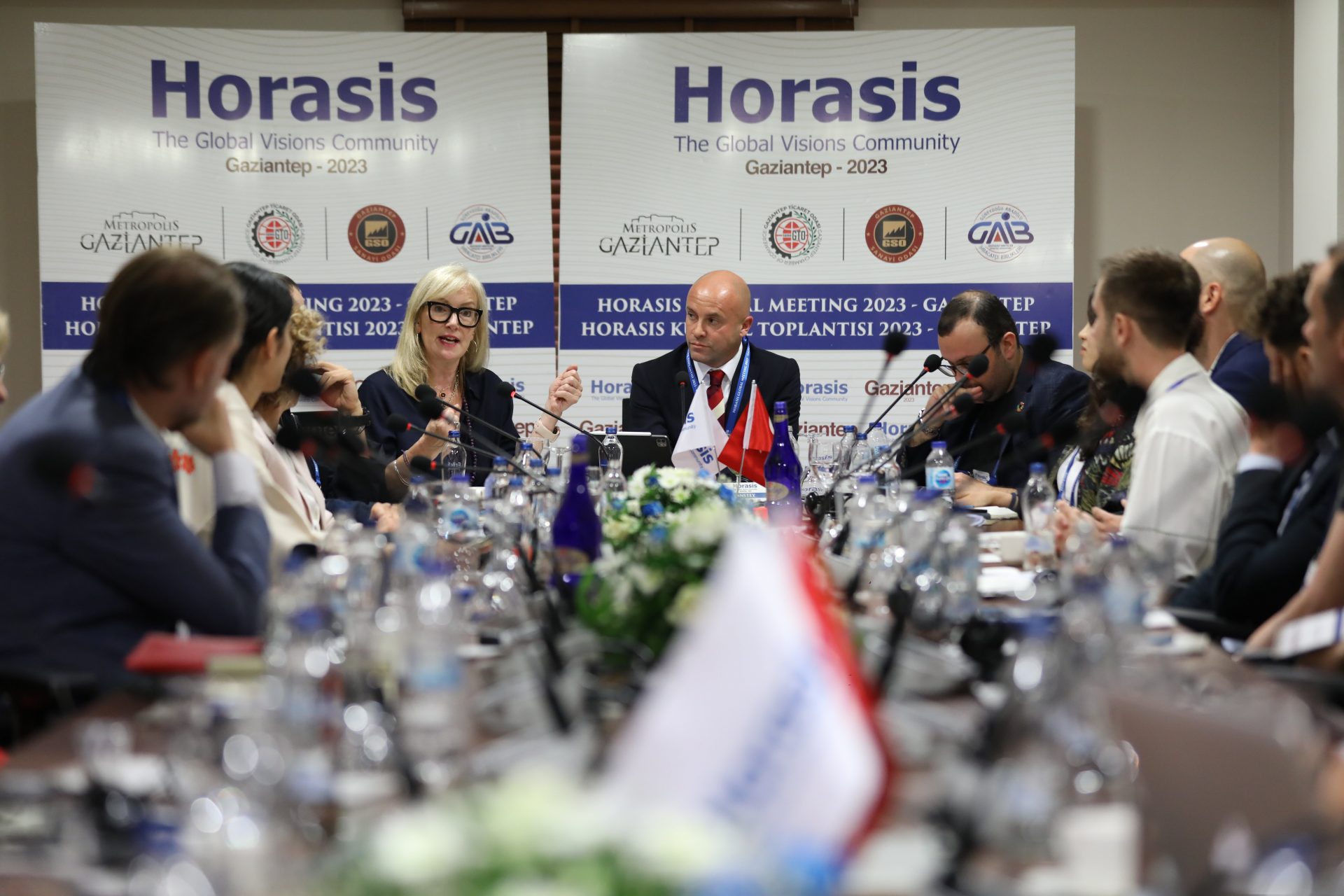The Elephant in the Room: Harmonizing Planetary and Human Needs
At a time when it can feel like planet earth is heading deeper and deeper into ecological destruction, mankind is also battling with rising human suffering including depression, loneliness, obesity, and preventable chronic illnesses.
Martyn Anstey, REIMAGINEx | 528 Ventures, UK led a very lively session to explore if and how these two trends are related and to start a dialogue around the critical fundamental questions. The session started exploring if and how mankind and planet can live in harmony, if and how we can reconnect with nature/planet and solve the climate challenges without first reconnecting to ourselves and each other and finally, what needs to shift and when/what are the shackles holding us back.

Pani Modiri, Journalist and Businesswoman, United Kingdom
Tim Lenton, Global Systems Institute, University of Exeter, UK emphasised the bigger picture with “The same drivers that are causing ecological destruction are driving inequality, overconsumption and related depression and ill health. We are trapped in an economic growth at all costs’ mentality which is causing profound human costs alongside ecological destruction. We need to change the values driving societies and give a political voice to our life-support system. We are shackled by the ideologies surrounding us. The ideology of economic growth at all costs has to go. We need to get together and identify the shared values that can underpin a truly flourishing humanity going forward.”
Jennifer Nadel, Co-Founder Compassion in Politics, Director Compassionate Politics, CCARE, Stanford University, USA built on this sentiment with “The disease of “more” has led to the pursuit of unbridled – unsustainable growth without regard for the finite nature of the planet’s resources. Similarly, we as humans have become units of consumption. There are some quite straightforward changes that could have an extraordinarily positive impact if they were taken up by more countries. For example, we now have five nations which have committed to using national wellbeing measures instead of GDP measures to drive their economic goals. What we focus on grows, what we measure comes to dominate. This one simple measure could set us on a dramatically different path.”

Sara Al Hilali, Methodology Advisor, UN Resilience Frontiers, UAE & Martyn Anstey, Founder & Chief Executive Officer, REIMAGINEx, UK
Martyn Anstey delved into what drives human behaviour at the most fundamental level and sparked a lively debate how to help mankind find reconnection, how to come back to harmony with ourselves and the ecosystem around us. Both humans and nations have become used to confusing wants with needs. To achieve harmony, we need to connect with our own ‘real’ needs and not those that have been triggered or inflated to drive consumption. Culturally, there are drivers everywhere encouraging us to take more than we need and more than is good for us. Our evolutionary needs to be liked / attractive have been preyed upon and subverted to drive wholly unnecessary and dangerous levels of consumption. We already have enough to go round. We’re just not sharing with everyone and we can’t share until we come back into internal balance.

Alex Rodriguez, Founder, NutriBrain, Spain
Kadir S. Gungor, Chairman, Sustainable Impact Capital, UAE built on the human connection topics with “We have to be at peace in ourselves first before we are able to truly connect and extend peace to other people and the planet. Peace at home, peace in the world.” Sara Al Hilali, Methodology Advisor, UN Resilience Frontiers, UAE spoke about the relationship between human and climate decline with “Climate change is a symptom, not the root problem. To address it, we need to elevate human consciousness. By leading heart-driven lives, we can foster leaders and communities that act mindfully for the well-being of Earth and one another.”
Kadir S. Gungor started the discussion around what action we can take. Kadir kickstarted the discussion looking at through the business and investor lens; “When starting any initiative, it’s important to ask to ourselves first how would this initiative help society, before asking how it can be more economically feasible. Because if it can help to society, it will eventually be an economic opportunity as well. But not every economic priority helps society. So, it’s important what you are answering first.”
Alex Rodriguez, Founder, NutriBrain, Spain discussed the power of individuals actions;
“Sometimes, it’s not about the big picture but the small changes that make the biggest impact. By helping one key person, we can create a ripple effect. Are we missing the simple solutions right in front of us?” Lewis Levent Özcan, Independent Filmmaker, UK reminded us all of the power of culture; “The key to unlock the harmonisation of human and planetary needs is culture.”

Tim Lenton, Global Systems Institute, University of Exeter, UK
Pantea Modiri, Journalist and Businesswomen, injected the role media can have in creating the future we desire; “Leveraging the power of media to awaken minds is the key to unlocking a path towards a brighter and more sustainable future. As communities coincide in awakening, we harmonize human needs with sustainability, illuminating a brighter future.” Tamer Nakisci, Founder, Futureisblank, UK spoke around designing and building meaningful products; “In order to create meaningful products for today, first we must form a utopian future for tomorrow individually and collectively. Only then we can create projects that are a step towards that future.”
The audience sparked considerable lively debate on this important topic. Martyn Anstey, was asked by Rob Garrett, Co-Founder & Managing Partner, Hezar Ventures, Singapore “What would be the most important thing to say to Rob’s daughter?”, Martyn responded with, “You are loved, just as you are. You are enough, just as you are.”
By Martyn Anstey, CEO, REIMAGINEx | 528 Ventures



